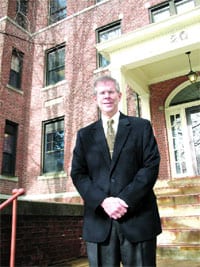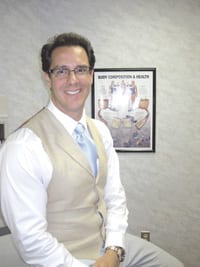Finding Your Life’s Passion Five Keys to Living the Life You’ve Always Wanted
I started ignorant about the world of work. I thought that if I picked a field that paid well, I would eventually be happy and figure it all out. The only problem was nobody ever told me what ‘figure it all out’ actually meant.
Sometimes I didn’t fit in. Other times, I didn’t like the way I was treated. These feelings led to unhappiness in the work that I was doing. Along the way, I did learn the Hindu concept neti-neti, which means a little of this and a little of that. How do you know what you like unless you know what you don’t like.
In my first semester my father said that engineers make a lot of money, so I decided to try engineering. I switched majors five times and graduated with a degree in Economics.
During my last year in college, I worked part-time at an accounting firm, which led to four and a half years of public accounting work. Poet David Whyte had a woman in one of his seminars who wrote, “I turned my head if only for a moment and 10 years later, it became my life.” I left the accounting field to go back to college for a degree in psychology.
“I was determined to follow my heart and not my wallet. I have discovered that there are five key concepts to help you to find your life’s passions. They will aid in your self-discovery and they will allow you to have more creativity, balance and joy in your life.
• Keep a File: I keep a file about individuals who have done something exceptional called, ‘Awesome People.’ One article is about filmmaker Ken Burns and the making of his documentary about the Lewis & Clark expedition. Ken said, “Lewis & Clark reminds us that exploration remains at the core of our national identity.” Another article is about an interview with Norman Vaughan who worked on Richard Byrd’s 1927 polar expedition. At age 89, he climbed the Antarctic peak that bears his name. I think just going to the South Pole at age 59 would be miraculous. Norman said, “all of us have more inside us than we believe possible.”
As I keep reading and rereading these articles and others like them, I try to relate my desire to explore with discovering what I really wanted to do with my life. I came to crave the stories of people who had done something extraordinary. I kept saying to myself that if they can do it, I definitely could too.
• Reasons Why: Are you happy with the work that you do? John Scully, the former CEO of Apple Computer, talked about the people that work only for money are the new slaves of this world. These people sacrifice their identity for a paycheck. Make a list of compelling reasons why you are doing your work in the first place and put it in a place where you can refer to it constantly. If your list is less than positive, it will serve as the motivation for the next phase of your life. Paolo Coelho, the author of the famous book, The Alchemist, said, “Dissatisfaction is a gift from God to get us on the right track.”
I thought that if I could work for a high-technology start-up company with stock options, then I could ‘cash out,’ and do what I really wanted. I signed up to sell computer software as employee number 30 out of 180 people. I was lured by 40,000 options and an incentive vacation. For the first six months we didn’t have a product to sell. The next three months we were still figuring it out. The last three months I was given a sales goal of $250,000 where nothing was ever sold before. My engineer and I did half of that goal and we were laid off in the second of three riffs (reduction in force).
I was frustrated at first, but then I was happy to be out of that pressure cooker. I swore that I would never work that hard for somebody else’s dream, only for my own. I wanted to control my own destiny. While I didn’t get the opportunity to ‘cash out,’ I did get closer to discovering what I was best suited for. I kept a journal of my progress in order to remind myself of the personal discoveries and sacrifices I had made along the way. I now use my journal to help me maintain my focus and as a reservoir of ideas.
• Just Launch: Sometimes just getting out of the starting gate is all that you need. I spoke to a friend this week that said that she really wants to start writing children’s books. However, she wants to wait for the right idea. This would be a main character that will have a series of adventures over several books. Instead of just starting to write, she is already putting a mountain of pressure on herself to succeed wildly with a series.
Tony Robbins once asked a person in one of his seminars what it would take for him to be happy. The man replied that he needed at least $3 million! There are plenty of people in this world who live on $20 per month and are profoundly happy. In my neighborhood there is a water purification company called Drink More Water. It was started 10 years ago with $300. Today they have over 5,000 delivery customers, and the owner turned down an offer of $12 million to purchase his company. Clearly it doesn’t take a lot of money to start your dreams.
William Shakespeare said, “Our doubts are traitors that make us lose the good we might oft find by fearing to attempt.” Going out into the unknown is really scary. I remember waking up in the morning with sore teeth before I left the computer field. I went to the dentist thinking that I had cavities, but he couldn’t find anything wrong. Instead, he had me wear a night-guard, because I was grinding my teeth. I was very tense as I ventured into the great beyond. However, the more I got to work on my dreams, the more I learned to trust in the process. As Brian Tracy said, “Success is a journey.”
• Make a Commitment: What is the old adage, ‘fail to plan, plan to fail?’ Make a ‘working plan of action’ going forward to give you stability and comfort. This is especially important when trying to deal with managing your stress in these times of uncertainty. You should give yourself at least nine months of constant effort, tweaking your plan along the way. However, as you probably know, it is an average of two years for a business to start turning a profit.
This commitment for a longer length of time not only gives you credibility, but it also takes into account the law of the harvest. Farmers know this very well. What you plant in the spring will grow into a beautiful plant by autumn. This process can’t be forced or rushed. However, all plants need constant watering, nourishment and a positive environment. Don’t forget this! How many plans or businesses fail due to inattention?
I was asked to photograph a doctor for his Web site portrait. I spent a few hours preparing and then some time afterwards sorting through my best images. He was unhappy with the results. We scheduled another appointment where I took extra care in the lighting and the environment. I even arranged for another photography professional to be there as a backup. The doctor liked the second set of photographs better than the first, but he still wasn’t happy.
I enjoy photography and I wanted to earn some money at the same time. I was so focused on making somebody else happy, that I lost sight of the bigger picture, my core business. I could have used the extra hours to call potential customers. As Stephen Covey says, “the enemy of the best is often the good.” Don’t be afraid to make adjustments going forward and be open to constructive criticism.
• Have Faith in Yourself: How can you accomplish this? A large part is attitude! Surround yourself with people who support you. Recently I had a phone conversation with a friend from the high-technology industry. He asked me if I had an interest in working for his company. I hesitated for less than a second. I said, “I am not interested, because I have made a commitment to make my new career work.” He said, “good for You.”
One way to have more faith in yourself is to go to bed every night with a vision of how successful and happy you are going to be in your new endeavor. Your subconscious mind will work ‘behind the scenes’ to help make your dreams come true. When you walk by a storefront that would be a great studio one day, visualize that it could be your studio! As Stephen Lundin, the author of the FISH! Philosophy, says, “Imagine the work place of your dreams.”
What is your dream, and how are you going to make it come true? Following your passion in life may make the difference between commuting two hours each way to being five minutes from the job of your dreams. The journey is not easy, and, at times, it may look like it is nearly impossible. As poet David Whyte said, “The blackest part of the night is just before the dawn.”
May you draw out your own passions with these five keys, and see the dawn of your dreams.
Mark Sincevich works with people and organizations to increase their communication power through a unique photography angle. He is the chief perspective officer of Staash Press and the developer of the Staash Perspective System: www.staashpress.com.


